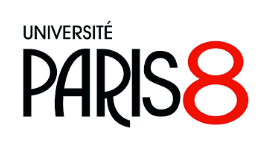17h00
zoom (write to cocoa-info [at] services.cnrs.fr for link)
First hour: Causal models tutorial. No knowledge of causal models required. Students especially welcome.
Second hour:
Dean McHugh, Univ. Amsterdam
A dynamic interpretation of structural causal models
Structural causal models (Pearl 2000) offer a popular, compact framework in which to model causal relations, and have recently been applied to a range of linguistic data, from conditionals (Schulz 2011, Kaufmann 2013, Ciardelli et al. 2018, Santorio 2019, Copley 2023) to causatives (Nadathur & Lauer 2020, Baglini & Bar-Asher Siegal 2020, Nadathur 2023, Glass 2023).
The widespread use of structural causal models raises the question: What, in the world, is a structural causal model? What does it mean in general for a structural causal model to be a true representation of a scenario? I seek to offer an interpretation of structural causal models, in the same sense in which we have interpretations of probability (Bayesian, frequentist) and interpretations of quantum mechanics (e.g. Copenhagen, many worlds): an attempt to explain how the formalism corresponds to experience.
I propose that structural causal models are abstractions of dynamical systems. A structural causal model specifies how some parts of the world can and cannot change through time. I argue that this interpretation is more satisfactory than previous proposals based on agency (Gasking 1955, Cook & Campbell 1979, Menzies & Price 1993) and mechanisms (Pearl 2000, Halpern & Pearl 2005). A further benefit of this interpretation is that it allows us to directly compare structural causal models with notion of circumstantial modality familiar to semanticists, such as Kratzer’s (1977) analysis.
References
* Baglini, Rebekah and Bar-Asher Siegal, Elitzur (2020). Direct causation: a new approach to an old question. Proceedings of the 43rd Annual Penn Linguistics Conference.
* Ciardelli, Ivano, Zhang, Linmin and Champollion, Lucas (2018). Two switches in the theory of counterfactuals: a study of truth conditionality and minimal change. Linguistics and Philosophy.
* Cook, Thomas D. and Donald T. Campbell (1979). Quasi-experimentation: Design & analysis issues for field settings.
* Copley, Bridget (2023). Events Are the Source of Causal Readings in the Simplest English Conditionals. Conditionals – Logic, Linguistics and Psychology.
* Gasking, Douglas (1955). Causation and recipes. Mind.
* Glass, Lelia (2023). Using the Anna Karenina Principle to explain why cause favors negative-sentiment complements. Semantics and Pragmatics.
* Halpern, Joseph Y and Judea Pearl (2005). Causes and explanations: A structural-model approach. Part I: Causes. The British journal for the philosophy of science 56.4.
* Kaufmann, Stefan (2013). Causal premise semantics. Cognitive Science.
* Kratzer, Angelika (1977). What ‘must’ and ‘can’ must and can mean. Linguistics and philosophy 1.3.
* Menzies, Peter and Huw Price (1993). Causation as a secondary quality. The British Journal for the Philosophy of Science 44.2.
* Nadathur, Prerna (2023). Causal semantics for implicative verbs. Journal of Semantics.
* Nadathur, Prerna and Lauer, Sven (2020). Causal necessity, causal sufficiency, and the implications of causative verbs. Glossa.
* Pearl, Judea (2000). Causality.
* Santorio, Paolo (2019). Interventions in premise semantics. Philosopher’s Imprint.
* Schulz, Katrin (2011). If you’d wiggled A, then B would’ve changed. Synthese.



